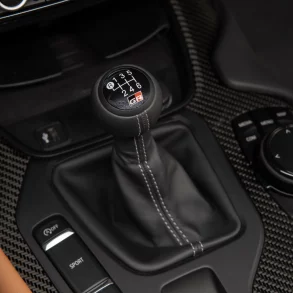Sales of New Cars In South Korea – Data, Trends, Charts & Analysis
Here you will find annual car sales figures for South Korea. These statistics are Total Market Volumes, which include passenger cars as well as light commercial vehicles (LCVs).
The figures below come from unconfirmed sources and can vary slightly from other data you may find elsewhere. Despite our best efforts to find the most reliable data, we can’t guarantee 100% accuracy, unless a specific source is mentioned below the table. Still, we’re confident the provided data is sufficiently indicative of the size and trend of the market to be published as such. If you have access to a confirmed source of South Korean car sales figures, including a split between Passenger Cars and LCVs, or data going back before 2005, please get in touch with us.
South Korea Automotive Sales Data & Recent Highlights
As you can see, the South Korean car sales market has been declining in recent years. The market has been shrinking at an average annual growth rate of 2.6%. There are a number of factors that have contributed to the decline of the South Korean car sales market. These include:
- The economic slowdown: The South Korean economy has been slowing down in recent years, which has led to a decrease in disposable income.
- The rise of electric vehicles: Electric vehicles are becoming increasingly popular in South Korea, which is taking market share away from traditional gasoline-powered cars.
- The shortage of semiconductors: The shortage of semiconductors is affecting the production of new cars, making it difficult to find cars for sale in South Korea.
The South Korean car sales market is expected to remain weak in the coming years. The market is expected to shrink by an average annual growth rate of 1.0%.
Here are some of the trends in the South Korean car sales market:
- The increasing popularity of electric vehicles: Electric vehicles are becoming increasingly popular in South Korea, as the government offers incentives to encourage people to buy them. In 2022, electric vehicles accounted for 10.4% of new car registrations in South Korea. This is up from 7.1% in 2021.
- The growing popularity of online car buying: More and more people are buying cars online in South Korea. In 2022, 15.0% of new car purchases were made online. This is up from 12.0% in 2021. The convenience and flexibility of online car buying are driving its popularity.
These are just some of the trends in the South Korean car sales market. The market is constantly evolving, so it is important to stay up-to-date on the latest trends.
Interesting South Korea New Car Sales Stats
- Best Sales Year Volume: 1,618,333 units sold
- Worst Sales Year Volume: 893,159 units sold
- Average Sales Per Year: 1,310,578.9 units sold
- Total Sales Units (since 2005): 23,590,420 units sold
South Korea New Motor Vehicle Sales Table
| Year | Sales | Growth |
|---|---|---|
| 2005 | 893,159 | |
| 2006 | 932,650 | 4.42 |
| 2007 | 1,010,790 | 8.38 |
| 2008 | 1,017,595 | 0.67 |
| 2009 | 1,221,118 | 20.00 |
| 2010 | 1,237,482 | 1.34 |
| 2011 | 1,293,501 | 4.53 |
| 2012 | 1,256,403 | -2.87 |
| 2013 | 1,243,868 | -1.00 |
| 2014 | 1,359,834 | 9.32 |
| 2015 | 1,533,670 | 12.78 |
| 2016 | 1,533,813 | 0.01 |
| 2017 | 1,526,660 | -0.47 |
| 2018 | 1,525,150 | -0.10 |
| 2019 | 1,497,035 | -1.84 |
| 2020 | 1,618,333 | 8.10 |
| 2021 | 1,468,873 | -9.24 |
| 2022 | 1,420,486 | -3.29 |
South Korea New Motor Vehicle Sales Chart
Sources: Manufacturers, ANDC, JATO Dynamics.









